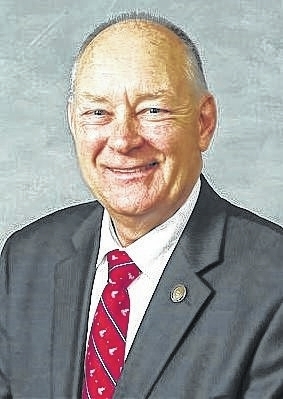Good Afternoon,
As many of you know, the Governor has called the legislature into special session this week, therefore I am sending out a special newsletter. The special session is to provide recovery and aid to those effected by the devastation caused from Hurricane Matthew and the wildfires that have plagued the western part of our great state. Our goal is to assist people, communities, and businesses effected by these disasters, along with addressing the school calendar. I cannot express how proud I am of all the individuals and organizations that have assisted the areas effected by these disasters. We plan on adding to the already valiant efforts put forth, and create a plan to further assist those in need across North Carolina.
As you are enjoying your holiday season, please stay safe. While the holidays are always meant for joy and celebration, there are always those who are looking to take advantage of this time of the year. Please, make sure your homes are properly secure at all times. When you are out doing various holiday activities, be sure that you park in well-lit areas, always remain alert, and constantly check your surroundings. I want to make sure that your holiday season remains a great one, as it is the most wonderful time of the year.
Legislative Recap
The Disaster Recovery Act of 2016
House Bill 2
I will highlight the details of the legislation that passed unanimously in the House and Senate today for the relief and recovery efforts for individuals, infrastructure, and communities damaged by Hurricane Matthew and western wildfires. These were some of the worst natural disasters in North Carolina’s history. The disaster relief package will be $200 million in total and be paid from two state sources. The state’s budget surplus will fund the first $100 million, while the remaining roughly $100 million will come from the state’s Rainy Day Fund.
Housing: Almost 4,500 homes were destroyed as a result of Hurricane Matthew, and over 1,600 families are still living out of hotel rooms. There was $29 million allocated to provide short-term housing for areas that were not covered by FEMA, along with grants for rental assistance, construction of new rental units, and repairs to damaged homes.
Community infrastructure: $41 million to help local governments fund repairs to infrastructure, trash pick-up, river maintenance, and any other local needs.
Economic development and stabilization: $5 million to help impacted businesses get back on their feet and revitalize the communities hit hardest by the storm.
Natural resources: nearly $38 million to help the agriculture community recover from disasters across the state. $24 million will go to aid in the wildfire response in western North Carolina. While the other $14 million will help rebuild farm roads, ponds, dams, and agricultural facilities destroyed by Hurricane Matthew.
Planning: $11 million to help local communities implement rebuilding plans that will prepare and safeguard them against major destruction during disasters that may occur in the future.
Direct aid: $75 million used primarily to partner with the federal government in providing nearly $600 million combined state and federal direct aid to North Carolinians.
School Systems: provides calendar flexibility to schools forced to cancel days in the aftermath of the storm. Affected schools will make up two missed days with the rest to be forgiven.
This is just the first round of relief and we plan on revisiting this issue in the 2017 legislative session. If you would like to view this bill, please visit the following link:http://www.ncleg.net/gascripts/BillLookUp/BillLookUp.pl?Session=2015E3&BillID=h2&submitButton=Go
Question of the Week
For my previous question of the week, I asked if you thought municipal elections should be held at the same time as the general elections. I received responses that people did think municipal elections should be held at the same time as the general elections. I agree with this and to implement that change we would have to amend our municipalities through state law.
The Rainy Day Fund will play a huge role in assisting the citizens of North Carolina that were effected during Hurricane Matthew and the wildfires. By statute, our current goal is to keep 8 percent of our state operating budget in the Rainy Day Fund to assist in times of crisis. We have made substantial investments in the Rainy Day Fund over the last few years, saving over $400 million in this year’s budget alone. What percent of our operating budget do you think we should strive to save in our Rainy Day Fund?
A) 8 percent
B) 10 percent
C) 12 percent
D) 15 percent
As always, please do not hesitate to contact me if I can assist you in any way possible.

